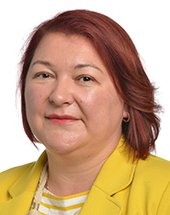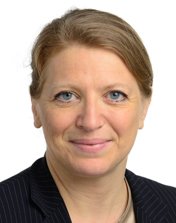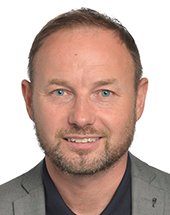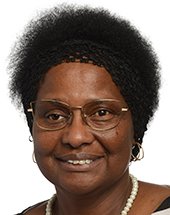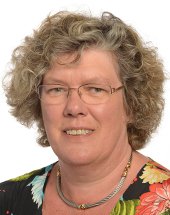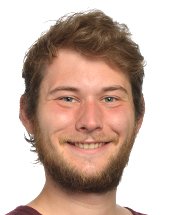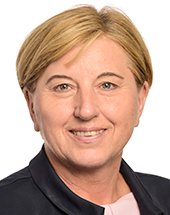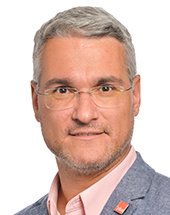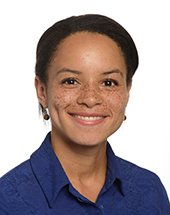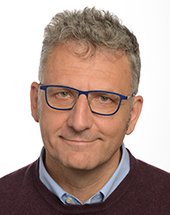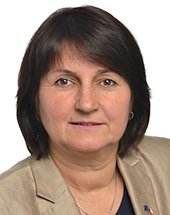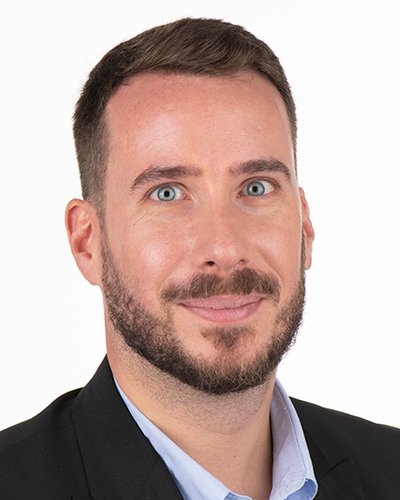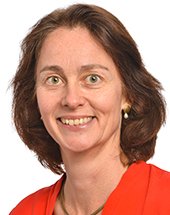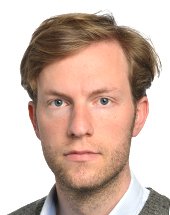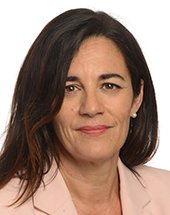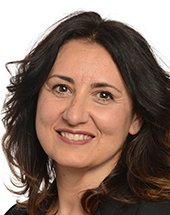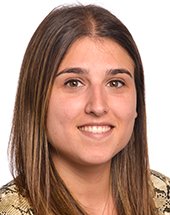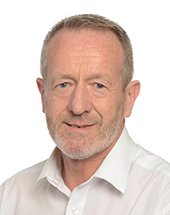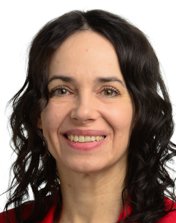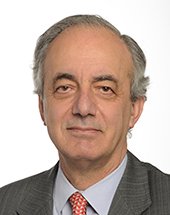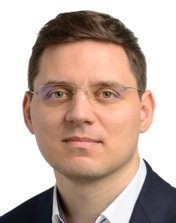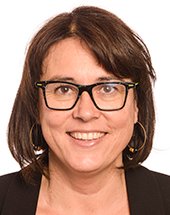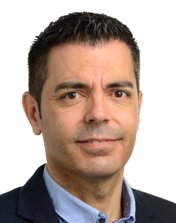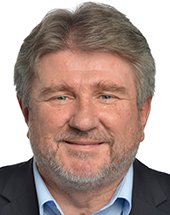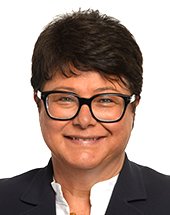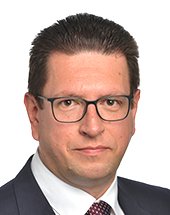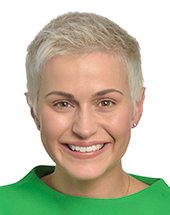Question Time (Commission) - Legacy of the European Year of Youth
Katarina Barley (S&D, Germany)
following the discussions in the working group on parliamentary reform, a new format for Question Time would be tested;
to allow more colleagues to speak, supplementary questions of 30 seconds could only be asked during the first round of speakers;
the supplementary question in this first round should be directly related to the main question and should not comprise a new question;
MEPs should now register their request by using their voting machine's function for spontaneous requests to speak after they insert their voting card.
Maria Walsh (EPP, Ireland)
the objective of the 2022 European Year of Youth was to shine a light on the importance of Europe’s youth in building a better and brighter future, and to put them at the center of decision-making;
yearly youth conferences and events should take place across all four corners of the Union, fostering local debates and encouraging young people to give their input into developing policy;
in September, she was delighted to welcome four aspiring parliamentarians from the MidlandsNorthWest constituency in Ireland to the Parliament (EP) as part of the EPP’s Youth Week;
stated that the youth unemployment rate stood at 13% in the EU;
that was over double the overall EU unemployment rate;
asked how the Commission would make vocational education and training programs more visible, accessible, and attractive to showcase the wealth of opportunities that can be offered at the national and the EU level.
Mariya Gabriel, Commissioner for Innovation, Research, Culture, Education and Youth
the European Year of Youth was indeed there to be able to listen to, support, and dialogue more with our youth;
was delighted that Irish youth were among the most active during this European Year of Youth;
the different training courses would go through the Erasmus+ program;
as far as vocational education training and technical training were concerned, the new Erasmus+ program had a larger budget and offered more opportunities;
the Commission would continue together, with the national agencies, to promote these activities, to give more visibility;
young people said that the European Year of Youth allowed them to become more aware of the opportunities offered by the European Union;
in the recent survey the Commission conducted with youth organizations, 35% of stakeholders said that the European Year of Youth allowed them to participate in EU actions for the first time;
the EU should continue to promote these programs and increase visibility and make sure that the European Year of Youth would not stop in May 2023.
Victor Negrescu (S&D, Romania)
at the beginning of this year, he requested the organization of this plenary debate on the legacy of the European Year of Youth;
the proposal, part of the ‘YouthUp’ campaign that he launched, was supported by the S&D Group, dozens of MEPs from all political groups, and many civil society organizations;
they were firm in requesting a clear follow-up for young people, and asked the Commission to move from nice words to concrete policies;l
introducing the youth test and mainstreaming young people across all EU policies, banning unpaid internships, supporting European citizenship education, implementing the proposals from the Conference on the Future of Europe, and promoting real mechanisms for youth participation;
asked when these proposals would be made and what was the exact timeline for their approval;
mentioned the need for the entire Commission to support the policy proposals, which should reach the EP as soon as possible to approve them during this parliamentary term.
Mariya Gabriel, Commissioner for Innovation, Research, Culture, Education and Youth
congratulated Mr. Negrescu for all the activities he maintained and for his commitment to youth;
the European Year of Youth would not stop at the end of 2022;
said there were several activities, evaluations, reports, and surveys underway, and the Commission maintained its commitment to the EP;
the Commission decided to publish a communication on the European Year of Youth and its follow-up;
it would be accompanied by a report on the implementation of the European Year in the form of a Commission staff working document;
it would include all the contributions of Parliament, the Committee of the Regions, and youth organizations;
the communication was planned for the second half of 2023;
said the EU needed to follow the activities, which continue until May, to receive the reports from the national coordinators, the reports from the Member States (MS), to have all the data concerning the online survey that just ended with the youth (on 14 April) and to continue to analyze the results with the youth organizations (which ended on 12 April);
the communication, as requested by the EP, should contain the necessary elements, namely those that will make it possible to identify, from among the thousands of activities of the European Year of Youth, the flagship ideas.
Victor Negrescu (S&D, Romania)
thanked the Commissioner for her answer, and said to her: but at the end of the year is quite late;
these proposals should be done by the end of this parliamentary term;
the EP allocated additional resources for the European Year for Youth of about EUR 80 million, and this was included in the budget for these years
Europeans and even NGOs from Romania (his native country) were not aware of what happened with the sums that were allocated;
asked to hear how the Commission used those resources;
asked when the proposals would be made in the EP.
Mariya Gabriel, Commissioner for Innovation, Research, Culture, Education and Youth
the EP, at the time of the negotiations, said that a mapping of the different activities, the different programs, and the different initiatives should be done;
recalled that she regularly kept the EP informed of all these activities, in December 2021, May 2022, in October 2022;
the total budget today that was allocated to the European Year of Youth has far exceeded what was decided at the trilogue;
at the time of the trilogue, it was a question of 5 million euros from Erasmus+ and 3 million euros from the European Solidarity Corps;
as of today, 140 million euros were allocated through the various programs mobilized;
insisted on the mapping and the fact that the EP was kept informed;
reminded the EP that most of the activities were still in progress;
this was one of the requests of the youth who, unfortunately, in February 2022, also found themselves facing a double challenge;
congratulated the youth because they mobilized for the war against Ukraine in a very united way;
mentioned the need to follow up on them so that they produce results, and the need to see them reflected in the communications.
Laurence Farreng (RE, France)
this European Year of Youth, full of promises and so important after COVID-19, left a taste of unfinished business;
there were events and forums, but no concrete progress, no new legislative proposals;
yet, there were so many subjects: the mental health of young people, the housing crisis, the fair remuneration of internships, the assistance to the installation in the active life, the equality between women and men;
these topics were already reminded to us by the young people during the conference on the future of Europe;
the Youth Test, which was announced by President von der Leyen should be a tool for consulting young people before legislative proposals were made, but also a tool for evaluating the impact of European policies on young people;
associations, but also young Europeans, should be included;
asked how the Commission would set up this tool, which was so important to ensure that European policy met the expectations of young people.
Mariya Gabriel, Commissioner for Innovation, Research, Culture, Education and Youth
emphasized the commitment to continue to work on two subjects that were particularly important for the youth: mental health and paid internships;
on mental health, you know that a Communication was being prepared for June;
she would make sure that the "youth" part was reflected in it, because of the need to address this issue and to be able to offer solutions to the youth;
recalled that the European Year of Youth was also there because young people suffered the negative repercussions of COVID;
on paid internships, she reminded the EP that she was not working alone on all these issues;
with Commissioner Schmit, they were making sure that the different instruments were adapted to the demand of youth;
on the subject of mental health, just two weeks ago, she created a group of experts who would work on well-being at school for schoolchildren throughout Europe;
what she expected from them, were very clear policy guidelines that all MS could put in place in schools so that the mental health and well-being of our school children was preserved and ensured;
on the Youth Test, the Commission wanted to focus on the existing instruments, such as the Better Regulation framework;
youth should be taken into consideration in consultations on issues that concern them and make sure that impact assessments took the opinions of young people into account;
reminded the EP that the conference on the future of Europe, in which the citizens' panels became a key element;
youth would have regular participation in these panels from now on;
the Commission considered having a citizens' report in the impact assessments, where we find it particularly relevant;
hoped that between now and the communication on the follow-up to the European Year of Youth, the Commission would be able to offer an adequate solution to the demands of our young people.
Laurence Farreng (RE, France)
there were indeed many subjects that needed to be discussed with young people themselves, especially since during the switch to the European Year of Skills;
mentioned a communication on the whole plan of the decarbonized industry, with a lot of space given to training;
believed that there was already room for integrating young people into this reflection on the jobs of tomorrow;
asked if the Commission was linking between these two years - because there was so much coherence between them - and in particular by consulting young people directly.
Mariya Gabriel, Commissioner for Innovation, Research, Culture, Education and Youth
said there was no lack of activities, no lack of youth organizations, no lack of committed or interested youth;
the Commission should make a little more effort in communication;
the link between the European Year of Youth and the European Year of Skills was youth;
mentioned the NEET group (not working, not in education or training);
after the launch of the European Year of Skills in May, she would ensure that the good practices and initiatives continue;
for the European Year of Youth, the Commission established new formats, the Youth Talks;
they planned to have twelve new Youth Talks in 2023 so that young people could continue to participate and share;
Voice Your Vision platform would also continue for every young person to express themselves in their mother tongue, to say what they think about these future jobs;
the Commission thought of making the Youth Stakeholders Forum a permanent platform, a permanent dialogue so that young people could be included in all the issues that will ultimately affect them.
Pierrette Herzberger-Fofana (Greens/EFA, Germany)
the European Year of Youth gave rise to a series of initiatives and events in which the EP participated by inviting young people from the MS, especially from the Erlangen-Nuremberg region, and also from Belgium;
all these young people wanted to be involved in the decision-making, but they also wanted to know what opportunities were available to them;
asked what policies were developed to limit youth homelessness in general and young migrants in the European Union in particular, knowing that in most cases they only had access to unpaid internships.
asked whether the youth that did not have European nationality, but who lived among us, could have access to European projects aimed at young people.
Mariya Gabriel, Commissioner for Innovation, Research, Culture, Education and Youth
said it was the Erasmus + program that made it possible to participate but would also like to see more discussion on the obstacles that still prevented access to these projects;
new schemes were put in place, such as those that allowed the EU to accompany the less privileged and those who needed it more;
new partnerships were set up, small-scale partnerships, which allowed new entrants to be selected more quickly;
the Commission would overview how the new features of the new Erasmus + program could further improve things;
reminded that one of the main objectives of the Erasmus + program was to be inclusive, and thousands of projects targeted young migrants and refugees;
more visibility should be given to these programs, possibly through the European Youth Portal.
Pierrette Herzberger-Fofana (Greens/EFA, Germany)
asked whether the young people who lived here, but who did not have a European nationality, have access to Erasmus+;
said this was a question she was asked everywhere;
it was extended to African countries but those in the EU are the question.
Mariya Gabriel, Commissioner for Innovation, Research, Culture, Education and Youth
said that the residence mattered and not the nationality;
the Erasmus+ program would continue to be open to the world;
confirmed that they could participate in the Erasmus+ program.
Chiara Gemma (ECR, Italy)
the European Year of Youth finally allowed to give voice and attention to the expectations and needs of the new generations, and it was the perfect time to move forward with confidence and hope from a post-pandemic perspective;
dwelled on the condition of the NEETs, those young people fail to be intercepted by the world of training first and then of work;
according to the most recent Eurostat data, the European regions most affected by this phenomenon were, unfortunately, in Italy and particularly in the Mezzogiorno;
without immediate intervention on the new generations, there would be a serious risk of leaving so many young people behind;
asked what policies, concrete and specific actions towards the NEETs the Commission intended to promote to relocate and involve all our young people.
Mariya Gabriel, Commissioner for Innovation, Research, Culture, Education and Youth
the Commission would continue to support those young people out of school and jobs;
the new ALMA program was put in place for this purpose;
the EU should promote this program, because, in April 2023, there were sixteen MS that included the implementation of ALMA in their national or regional program through the European Social Fund;
synergies between several programs, the European Regional Development Fund, the education policy, and the European Social Fund, would encompass a youth to be included through different initiatives and to feel committed and supported;
ensured that there would be more synergies between the Erasmus program, the European Solidarity Corps, the European Regional Development Fund, the European Social Fund, and these programs that were aimed at this type of youth.
Andrea Bocskor (NI, Hungary)
the European Year of Youth was a very good opportunity for the young generation to get more attention and to make their voices heard;
the other main objective was to improve the visibility and popularity of the European Union among young people in Europe;
the Erasmus program was the most popular in the European Union for 30 years, with millions of Hungarian students taking part in it;
it was regrettable that a discriminatory decision has now been taken that Hungarian students and teachers will perhaps no longer be able to take part in this program after 2024;
this sent a very bad message to Hungarian students, teachers, and universities;
hoped that this could be resolved as soon as possible and that Mrs. Gabriel could move this decision in a positive direction.
Mariya Gabriel, Commissioner for Innovation, Research, Culture, Education and Youth
the European Year of Youth has indeed enabled more young people to get to know the European Union, but also to be heard;
this was seen in the first results of this survey, which was conducted online among young people. There were over 1,300 responses;
66% of young people thought that, during the European Year of Youth, they had the opportunity to make their voices heard;
they identify several channels through which they were heard: first, as always, the Erasmus+ program and then the European Solidarity Corps;
28% wanted better communication on these topics on social media;
there were 26 dialogues with commissioners and the youth was clearly in favor of it;
the EP organized an event that was very successful;
emphasized that 70% said that the European Year of Youth positively influenced their knowledge or their vision of the European Union's action;
the question would be how the EU could go beyond those who were able to participate and answered that the European Year had a beneficial effect;
the challenge remained to reach out to those who, throughout the European Year of Youth, would have liked to participate more and have ideas to continue their involvement;
the challenge of the legacy of the European Year of Youth: is not only to reach out to young people but to be able to mobilize them over the long term.
Andrea Bocskor (NI, Hungary)
the voice of all young people should be heard by the European Commission;
his suggestion regarding Erasmus was that he hoped Commissioner Gabriel would make a positive contribution to ensuring that Hungarians were not excluded after 24.
Sabine Verheyen (EPP, Germany)
the way the European Year of Youth was discussed showed that it is not just one topic, but a very broad spectrum of topics that interested young people;
she would have liked to see not only the Commissioner responsible for education programs, training, universities, and research here today, but a whole series of Commissioners;
asked to what extent the issue or the issues raised by young people in the course of this year (the environment, the issue of education and training, the issue of digitization, the issue of mental health, the issues such as unpaid internships or participation) penetrated the Commission;
asked to what extent were the MS involved.
Mariya Gabriel, Commissioner for Innovation, Research, Culture, Education and Youth
reassured that there was a real Team Europe approach in the Commission;
there were more than 100 initiatives that the Commission deployed for the European Year of Youth;
the budget of 140 million euros also came from the Social Fund, the European Interconnection Facility, from a whole range of programs, including the agricultural policy and the maritime policy;
the issue of mental health and youth should be an integral part of the Commission's communication, planned for June;
the Commission showed it listened to young people with the adoption of the package on digital skills in education;
work on the legacy of the Year should be done, and this would be reflected, in the communication to be presented by the end of this year.
Petra Kammerevert (S&D, Germany)
the situation in European cooperation, especially in voluntary youth welfare, visibly deteriorated;
the European Year of Youth did not change this situation either;
COVID caused structures to virtually collapse and they could only be restored at great additional expense;
Europe experienced cost explosions in this area, and this ultimately made measures in youth welfare almost unaffordable, especially for those who needed them most urgently;
mentioned the shortage of skilled workers in the voluntary sector, but above all among professional staff;
said volunteers needed professional support, and so the holes in youth work and in the structure of youth welfare are widening throughout Europe;
doing nothing would be an indictment, especially after the somewhat botched European Year of Youth;
asked the Commission what the Commission planned to do to tangibly counteract these really dangerous developments, particularly in the area of European youth work.
Mariya Gabriel, Commissioner for Innovation, Research, Culture, Education and Youth
mentioned the instruments to tackle these issues: the youth strategy, the dialogues, the various forums;
counted on the legacy of the European Year of Youth to be able to identify the organizations and young people with the Commissioner would work on these issues, even if it meant going outside the usual circles;
those who would like to address new requests, those who would like to draw attention to new organizations, to subjects that young people want to address, also have the possibility of calling the European Youth Coordinator;
it could allow this coordination to be able to deal with subjects that have not been dealt with up to now;
the EU should not only use our existing structures but also think about how, based on the experience of the European Year of Youth, it could do something new, and innovate, to be able to tackle the subjects.
Samira Rafaela (RE, Netherlands)
the European Year of Youth was very necessary;
the youth should be engaged and participate also in the decision-making process;
touched upon the participation of the youth coming from overseas countries and territories;
mentioned the OCT Youth Network but highlighted the need to have a strategy to structurally engage the youth from overseas countries and territories;
asked what was the strategy to make sure that they engaged and participate;
asked what the Commission would do to make sure that they could participate on a structural and equal level in the education programs we have, like, for example, Erasmus+.
Mariya Gabriel, Commissioner for Innovation, Research, Culture, Education and Youth
this issue should be addressed as youth should be included;
the integration of overseas territories would be easier in initiatives by subject;
the Commission created a network of young ambassadors on ocean health for research in different areas;
these initiatives would allow them to participate, including in topics that are interesting to them;
this would not prevent them from having a more in-depth reflection on their participation in Erasmus+.
Tomasz Frankowski (EPP, Poland)
the 2022 European Year of Youth demonstrated the European Union's commitment to young people and future generations;
activities for young people did not end on December 31 and mentioned the need to build on the long-term legacy of the year;
asked whether the Commission already conducted an analysis of youth participation and expectations based on recent surveys that were conducted among youth organizations;
if so, he asked what were the results of these surveys, and did the Commission foresee synergies with this year's European Year of Skills;
asked if there were any specific activities planned.
Mariya Gabriel, Commissioner for Innovation, Research, Culture, Education and Youth
said the analysis of the data was in progress;
there were 13,000 activities on the portal of the different activities;
the activities related to the European Year of Youth reached 150 million citizens;
It was very encouraging that the first responses received showed that a large part of the young people who participated in activities did so because it was the European Year of Youth;
by May, the Commission would have all the data and all the analyses, with the surveys, with the different reports;
at that time they would make a connection with the European Year of Skills and the legacy that this year was supposed to have;
in the new Erasmus+ program, youth participation was one of the novelties: during the European year, the budget was 370 million euros;
in 2023, the budget would be 412 million euros;
this also reflected the will to have even more projects and to involve even more young people.
João Albuquerque (S&D, Portugal)
one of the goals of this European Year of Youth was to create inclusive societies;
in some European countries, three out of ten people who experienced homelessness were young people;
young people were also those most affected by access to housing and those who had the most difficulty in obtaining housing, whether through the rental market or access to purchase and housing loans;
within the social pillar of the European Pillar of Social Rights, in principle 19, the principle of access to housing was also established;
asked how the European Commission, within the scope of this principle, intended to strengthen access to housing for young people and, in this way, strengthen what should also be the legacy of the European Year of Youth.
Mariya Gabriel, Commissioner for Innovation, Research, Culture, Education and Youth
said that access to housing did not fall within her competence;
if this issue was discussed, debated, and lead to a decision at the level of the European Commission, obviously, through the policies under her responsibility, she would support;
throughout the year in the MS, it was the national coordinators who were there to implement the various activities;
drew attention to the importance of the reports that the national coordinators should send;
they would have their last meeting in May;
they would identify good practices, what worked, or not, how to reach groups of young people who were not previously included;
she met with the national agencies of the Erasmus + program and the national agencies were also the ones that could develop inclusion strategies.
Seán Kelly (EPP, Ireland)
complimented Commissioner Gabriel, on her work for the European Year of Youth and for facilitating this discussion on its legacy and lessons learned;
young people were greatly impacted by COVID and would be affected most by the crisis in climate;
said they deserved credit for helping through their protests and marches to create the ‘fit for 55’ and net zero;
one big area which was a problem was the whole area of skills;
asked Commissioner Gabriel whether she would utilize next year’s Year of Skills to ensure that young people were encouraged to take up the skills necessary to meet the obligations in renewable energy, the energy performance of buildings, etc. through more vocational and educational training.
Mariya Gabriel, Commissioner for Innovation, Research, Culture, Education and Youth
not only during the European Year of Skills but since the very beginning of this Commission's mandate it ensured that young people would have these competencies, from basic to advanced skills;
a new initiative Pathways to School Success would address these basic skills;
said that almost a quarter of youth did not have basic skills in math, in reading, and the Commissioner would continue to make efforts here with all the MS;
in the European Education Area, the Digital Education Action Plan were designed to ensure that youth have better results;
COVID showed that the EU could no longer only worry about formal education, but also about informal and non-formal education;
it could no longer think only about skills in terms of content and education in the traditional sense;
the well-being of our schools, mental health, teaching, and teacher training should be at the top of the priority list;
MS should make good use of the unprecedented budget they had for these subjects;
reminded that it was the first time that there would be so much budget in the MS, through the recovery plans, through the unprecedented budget of the Erasmus+ program, to tackle these issues.
Marcos Ros Sempere (S&D, Spain)
asked how many young people have heard about the European Year of Youth;
as an observer of this Parliament for the development of the European Year of Youth, he saw the interest that this European Year has raised in many youth organizations;
but the impact was very limited but said there was to improve it to leave a good legacy for young people;
said Europe lived in a very delicate moment regarding the housing situation;
he asked the Commissioner at the time about the problem that some Erasmus students had in finding housing in their destinations;
asked whether the Commission had any plan to guarantee access to quality and affordable housing for young people in general, and especially for those who are on an Erasmus stay;
questioned what the Commission would do to ensure that unpaid traineeships were banned, to improve the working conditions of our young people.
Mariya Gabriel, Commissioner for Innovation, Research, Culture, Education and Youth
regarding the number of young people, the Commission did not have accurate numbers;
the number of activities was 13,000, 150 million citizens were affected and according to social networks, it reached 200 million;
what was important was that as many people as possible knew about the opportunities that the European Union could offer to young people;
if the European Year of Youth was a springboard for some, the Commission should not lose sight of those who were not able to find out;
insisted on the important role of the national coordinators, who should have a very precise view of everything that happened in their territory, from the rural and most remote areas to the capital;
better communication would be key to reaching those who were not aware of these initiatives;
regarding access to housing, this was not an issue that fell within her competence.
Damian Boeselager (Greens/EFA, Germany)
stated that the closer one gets to death, the more one decides about the future, due to the current demographics in Europe;
asked whether the Commissioner would support a voting age of 16, as it was also asked for in the electoral law act from the EP;
asked her opinion in terms of allowing younger people to participate, not only in elections but also in standing as candidates for these elections.
Mariya Gabriel, Commissioner for Innovation, Research, Culture, Education and Youth
some MS already had good practices regarding participation and lowering the age limit;
she could not intervene in the competence of the MS;
stated that youth was needed to decide, co-create and implement decisions;
said that the message to send to the youth was to not focus on one issue, which would not solve everything;
the age of participation would not solve everything;
should continue to discuss it and see what would be the best practices that could be offered to youth, taking into account the diversity of the MS;
young people were not only asking to be heard and listened to, but also to participate in the implementation of a decision;
that this is what the European Year of Youth was most useful for;
said they did not only need debates and conferences to express themselves on a topic but also needed to be there when the solutions were shaped, changed, and ready to be implemented.
Miriam Lexmann (EPP, Slovakia)
one of the objectives of 2022 as the European Year of Youth was to highlight the role of young people in the future of the European Union and to help them overcome the negative effects of the Covid-19 pandemic;
during the pandemic, many young people became socially isolated and lost educational or career opportunities;
many developed fears about the future;
it compounded by significantly increased time spent on social networks, caused their mental health to deteriorate;
surveys showed that Europe was experiencing a mental health crisis among young people, too many of whom suffer from depressive feelings or anxiety;
asked how the Commission planned to continue the legacy of the European Year of Youth in promoting and protecting the mental health of young people;
did Commission plan further action to protect young people from the negative effects of social networks.
Mariya Gabriel, Commissioner for Innovation, Research, Culture, Education and Youth
reconfirmed that the mental health of young people was a priority;
this would be an integral part of the Commission's communication in 2023;
the work of the expert group on the guidelines for school well-being should take into account these mental health issues;
Also, here, anything related to the negative effects of social networks will be a focus of those guidelines.
regarding mental health, it should not limit itself to the role played by education or programs like Erasmus+ regarding mental health;
thanked the EP, with the chair of the Committee on Culture and Education, Sabine Verheyen, that organized a conference on mental health and the cultural and creative sector;
the whole issue of mental health in and out of school could also be an opportunity to explore new avenues such as the cultural field;
the communication would highlight the positive role of the cultural and creative sector in mental health.
Dragoş Pîslaru (RE, Romania)
the European Year of Youth was eagerly awaited by all young people on this continent, and it was an initiative whereby the EU wanted to listen to the voice of young people and involve them in decisions at the European level;
many MS’ efforts came largely from civil society, youth organizations, from youth workers;
they practically filled the map at the European level with events, activities, discussions;
the European Year of Youth was their achievement and their efforts should be appreciated;
when it came to negotiating the recovery and resilience mechanism, and he was rapporteur on this dossier with other colleagues, there was a pillar dedicated to the new generation;
unfortunately, very few governments used those resources for partnerships with civil society;
asked what commitment the Commission could make so that in the future these partnerships would be more solid with young people.
Mariya Gabriel, Commissioner for Innovation, Research, Culture, Education and Youth
there was no proposal made in her portfolios where the youth perspective, the youth experience was not taken into account;
in the strategy for universities or university alliances and the role of youth, or innovation, where the youth had a role to play, including in rural areas, was taken into consideration;
in May, she would ask to see the 13,000 activities what were the areas in which there were the most activities, what was the geographical distribution, what were the regions;
should capitalize on these initiatives;
Culture moves Europe for young artists, I am thinking of young researchers, and the Healthy Life Styles, the laboratories we have launched with our youth were examples of initiatives that should continue to be taken into consideration.
Bogdan Rzońca (ECR, Poland)
said there was a natural order of life: having children, educating children, teaching them responsibility, acquiring skills taking up jobs, and then starting families;
asked whether the Commission thought that the EU disrupted this natural order of life by pushing anti-values;
children to succeed should be taught effort.
Mariya Gabriel, Commissioner for Innovation, Research, Culture, Education and Youth
said the Erasmus + education program, was enshrined in fundamental values and principles clearly defined in Article 2 of the Treaty;
made sure to focus on the positive things, give them more visibility, and encourage more people to see the opportunities that were out there;
the EP fought to double the budget of the Erasmus + program and made 28 billion Euros available;
saw this money as millions of European citizens, young people with or without experience who could participate.
Francisco José Millán Mon (EPP, Spain)
welcomed initiatives, such as the European Year of Youth, that sought to bring the European Union closer to young people;
said young people were the future and they needed to be well acquainted with the functioning and objectives of the European Union and its institutions;
welcomed the 2018 Council recommendation that seeks to strengthen the European dimension of education;
seemed essential that young people got to know Europe on the ground, first-hand;
there were several successful initiatives in recent years, such as the Discovery EU program, which was highly sought after by young Europeans since its launch in 2018;
asked what was the assessment of the functioning of the Discovery EU program;
asked whether the Commission considered other similar initiatives for young people to get to know Europe and learn about it;
the EP’s recent Resolution of December 14, 2022, also approved another initiative for young people to learn about European cultural routes and could have a voucher in the framework of the Erasmus + program.
Mariya Gabriel, Commissioner for Innovation, Research, Culture, Education and Youth
said that DiscoverEU was no longer a pilot project, but was an integral part of the Erasmus+ program;
the novelty of DiscoverEU was to include cultural routes, to see that DiscoverEU was not only to travel, it was also to know another culture;
DiscoverEU remained a real example to encourage the youth to be open, to know the culture and the different places in Europe;
mentioned the need, to better popularize the Jean Monnet actions;
From now on, there is a novelty with the Jean Monnet program: support classes that could carry out exchanges to learn more about the functioning of the European Union;
the new Erasmus+ program could offer a lot more opportunities for teachers, students, and whole classes to enjoy this experience and learn more.
Alicia Homs Ginel (S&D, Spain)
when designated 2021 as the European Year of Youth, it aimed to empower European youth, putting them at the center, increasing their participation, and listening to them;
young people said they wanted stable contracts, decent wages, social protection, decent and affordable housing, education, and mental health;
asked what assessment the Commission made of these conclusions of the Conference on the Future of Europe, and what concrete policies it would pursue in this regard;
Mariya Gabriel, Commissioner for Innovation, Research, Culture, Education and Youth
not a single month went by without Commissioner Gabriel having meetings with the youth, in elementary school, high school, or university;
was satisfied because the recommendations from the Conference on the Future of Europe in the field of education, research, innovation, culture, and sport, were very concrete;
was working together with Commissioner Schmit on the matter of paid internships;
proposed to revise the European framework for internships but was reminded it was not within her competencies.
Ilana Cicurel (RE, France)
stressed the need for a "youth test" that would apply to all European policies;
it would probably be the best legacy;
mentoring was declared a national cause in France;
shared her attachment to this practice, which showed its powerful effectiveness in reducing educational, social, and territorial inequalities;
asked if the EP could count on Commissioner’s Gabriel support to develop mentoring on a European scale and recognize the skills acquired by mentees and mentors alike;
the upcoming Year of Skills would be the ideal framework to build a European framework of psychosocial competencies acquired during a solidarity commitment.
Mariya Gabriel, Commissioner for Innovation, Research, Culture, Education and Youth
said the EP could continue to count on her support;
believed that the European Year of Skills could be a good opportunity to be much more "vocal" and to talk about mentoring;
said the European Year of Skills was the right time to be able to raise the subject at the European level, to simply show its positive effects and its benefits;
also considered this, especially in the area of innovation;
heard the demands of the youth regarding the “youth test”;
on the occasion of the communication on the European Year of Youth, the Commission would propose something to correspond to the requests that were made.
Loránt Vincze (EPP, Romania)
one of the most pressing issues was the lack of proper funding which affected the quality and scope of the events organized;
Romania received a very small amount from Erasmus+ for youth projects and the payment was made only in November 2022;
asked how the Commission could ensure that future initiatives would be more closely aligned with the stated objectives and that resources are focused on activities that would have a significant impact;
wondered what measures would be taken to ensure that policies and programs were tailored to meet the needs of all young people, including those from diverse ethnic, cultural, linguistic, and socioeconomic backgrounds.
Mariya Gabriel, Commissioner for Innovation, Research, Culture, Education and Youth
her biggest events with youth, were in Romania, in Cluj, and she rarely saw so many young people in such a committed event;
did not hide the need to continue to follow closely the needs;
did not think there was a lack of funding per se, as I said as initial funding for the European Year of Youth was 8 million euros from the Erasmus+ program and the European Solidarity Corps;
insisted on the fundamental role of national agencies;
asked each agency to have an inclusion strategy and it was up to the national agency to be able to address these categories of young people in remote areas;
mentioned a new scheme for less favored people in the Erasmus+ program;
it would be up to the national agencies to make more efforts to be able to popularize these initiatives to those who need them the most.
Niklas Nienaß (Greens/EFA, Germany)
the European Year of Youth was not just last year, but it should be every year;
thought it was a pity that Commissioner Gabriel said many of these topics were not under her competencies;
asked what would be done to involve young people in Europe in the political decision-making process;
mentioned the need for not only co-determination but co-decision-making by young people, because they would decide on the future of this continent.
Mariya Gabriel, Commissioner for Innovation, Research, Culture, Education and Youth
The Girls Go Circular project - young girls between 14 and 19 who could receive free training in the circular economy;
the Deep Tech Talent initiative: one million talents by 2025;
this initiative was for all regions and all those who wanted to participate;
said she was very committed to making sure that youth were considered in every initiative;
would like to see a critical mass of initiatives at the European level that concerned youth and which took them as participants in their implementation.
Diana Riba I Giner (Greens/EFA, Spain)
the European Year of Youth gave a great legacy, which was to have these spaces to talk about and put young people at the center of the agenda;
as the Verts/ALE Group, the orientations to the Commission's budgets for 2024, they suggested linking the European Year of Youth to the European Year of Skills;
asked what initiatives would the Commission propose to ensure a coherent momentum between the two European Years;
should ensure that young people were involved in all European policies and also in the evaluation of their impact;
cross-cutting effort should be made to ask ourselves how to drive these policies with young people and for young people;
asked what should be done to put an end to job insecurity.
Mariya Gabriel, Commissioner for Innovation, Research, Culture, Education and Youth
the College adopted two recommendations to the Council concerning digital skills (1-2);
said that less than 20 percent of European students in schools had a connection that went beyond 100 megabits;
similarly, one-third of students lacked basic digital skills;
this was a very concrete example of a topic that was among the priorities of the European Year of Youth and the European Year of Skills;
at the same time, the digital divide should be reduced;
MS should have an inclusive strategy to address the issue of equipment, connectivity, of skills, and teachers.
Massimiliano Smeriglio (S&D, Italy)
the European Year of Youth was not the success it should have been;
it was a wasted opportunity, complicit in the pandemic and the war, which also exacerbated some youth fragilities;
many problems remained, including mental well-being, challenged by isolation and lack of prospects;
asked when there would be a European strategy on mental health with a specific focus on the younger generation;
asked where the Commission stood on the automatic mutual recognition of degrees and qualifications.
it would be important to include more active and participatory European citizenship modules in school curricula;
questioned what were there concrete steps in this direction.
Mariya Gabriel, Commissioner for Innovation, Research, Culture, Education and Youth
mental health: communication planned for June 2023 with a key element on youth;
in February 2023, the Commission published a report on the situation in the MS following the Council recommendation of 2018;
together with the Swedish Presidency, the Commission prepared conclusions that would be adopted in May;
the recognition of diplomas was a fundamental element of the European education area;
the report recognized that things moved forward, but more effort was needed.
Ljudmila Novak (EPP, Slovenia)
said that young people had a very positive attitude towards Europe and that they wanted to come and do internships in the institutions;
asked what advice the Commissioner would give to young people who started a family early and also wanted to supplement their knowledge abroad.
Mariya Gabriel, Commissioner for Innovation, Research, Culture, Education and Youth
by the end of the year, there were already plans to propose a new framework for learning mobility, to address the existing barriers and obstacles;
less than 15% of young people participated in mobility activities in the European Union;
hoped the Commissioner would be able to offer more facilities.
Michaela Šojdrová (EPP, Czechia)
thanked the Commissioner for her commitment and understanding of the European Year of Youth;
believed that the participation of young people involved in the regions, but also here in various events, showed that young people were interested;
asked what the cooperation was with the Swedish Presidency and whether they planned a similar event, involving the Commission, the Council, and the EP.
Mariya Gabriel, Commissioner for Innovation, Research, Culture, Education and Youth
congratulated Mrs. Sojdrova for the closing conference, because it was one of the highlights of the year;
confirmed that the Swedish presidency was going to organize a day dedicated to mainstreaming and integration of youth policies;
it would be an opportunity to make the transition to the legacy of the European Year of Youth;
the Swedish Presidency clearly stated its desire to build on the European Year of Youth.
The simultaneous interpretation of debates provided by the EU institutions serves only to facilitate communication amongst the participants in the meeting. It does not constitute an authentic record of proceedings. One Policy Place uses these translations so this text is only a guide and should not be relied on as an official account of the meeting. Only the original speech or the revised written translation of that speech is authentic.
